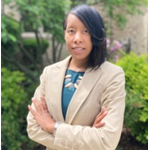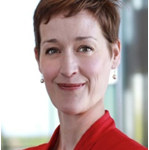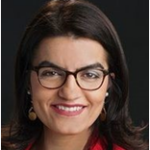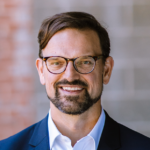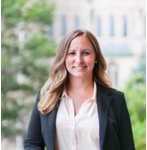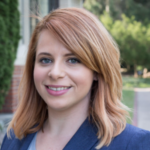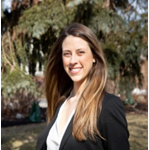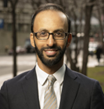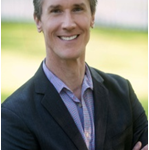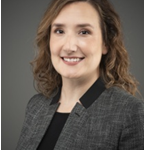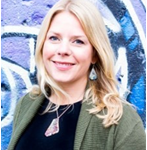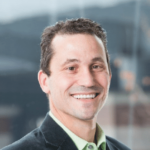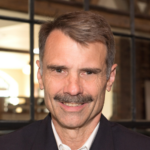The Cleanup Club: Working to Mitigate Plastic Pollution in the Great Lakes
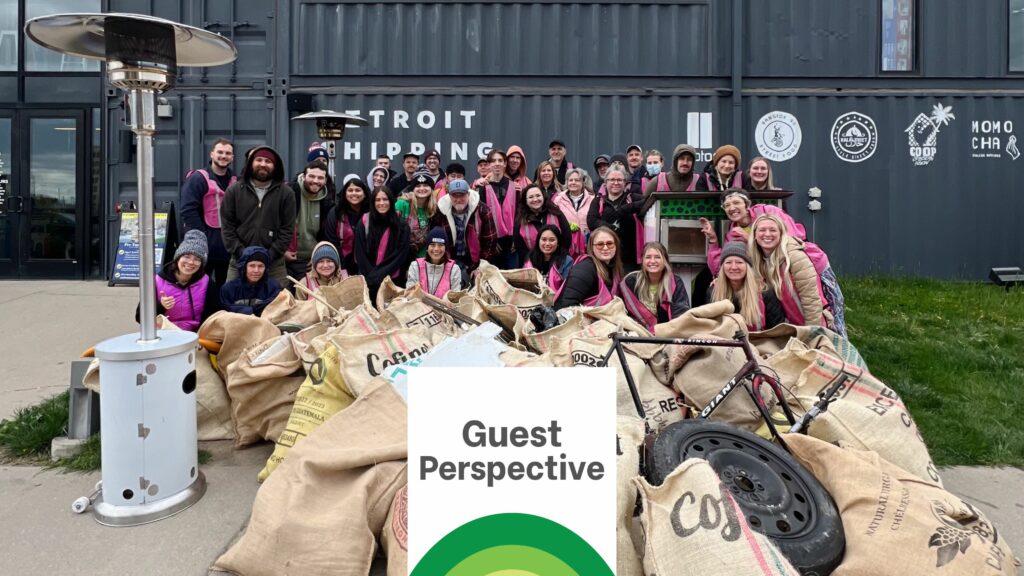
HANNAH TIZEDES IS THE FOUNDER AND EXECUTIVE DIRECTOR OF THE CLEANUP CLUB Before founding The Cleanup Club, a nonprofit dedicated to protecting our communities and Great Lakes from plastic pollution through cleanups and creativity, I amassed a collection of over 100,000 pieces of plastic debris from the Great Lakes shorelines during solo cleanups. I used the colorful found objects to create thought-provoking art pieces and installations to inspire conversations about how we can all play a role in protecting the places we love. Creativity has continued to play a key role in The Cleanup Club’s mission to protect our communities and Great Lakes from plastic pollution while having fun. We aim to serve as an approachable source to help educate and spark dialogue with people online and in person about the urgent need for action to protect our freshwater resources. In 2016, a study from the Rochester Institute of Technology revealed that nearly 22 million pounds of plastic pollution enter our Great Lakes every year, with major cities such as Detroit, Chicago, and Toronto being primary sources. By 2024, plastic production has continued to increase globally, and so has the urgent need to protect our waterways from harmful impacts. This is particularly crucial as these bodies of water provide drinking water to over 40 million people across the US and Canada. Recent studies have shown that topics such as climate change and plastic pollution often leave people feeling frightened and negative. With the rise of terms like “eco-anxiety” and studies emphasizing the growing harms of plastic pollution, The Cleanup Club aims to push forward crucial work for a more sustainable future and cleaner waters. At the same time, we strive to create an uplifting community that empowers individuals, communities, and businesses to take action together through joyful and collaborative experiences. We understand that working together is essential when it comes to finding upstream solutions and mitigating plastic pollution in our region. This is why The Cleanup Club values collaborating with aligned local businesses and global brands. We aim to educate and expand the conversation about Great Lakes plastic pollution through community cleanups, educational programming, and interactive creative projects around Michigan, focusing on Southeast Michigan. When partnering with The Cleanup Club, local businesses enjoy the benefit of a passionate group of volunteers cleaning up their neighborhoods while driving awareness and business to their unique offerings. Past partners, contributors, and sponsors include Walking Lightly and 86 Plastic (local zero waste stores in Metro Detroit), Dessert Oasis Coffee Roasters, HiBAR, Detroit Shipping Co, Belle Isle Conservancy, Royal Oak Sustainability, and more. Community events are not only fun ways to get outside and take part in collective action but also serve as a way to collect data on top-polluting items and top-polluted areas for advocacy and research efforts that further promote upstream solutions. While we acknowledge that cleanups are not the ultimate solution, we strongly believe they play an accessible and active role in education and advancing our collaborative efforts for a brighter, more sustainable future for people and the planet. Learn more at www.thecleanupclub.org and follow on Instagram at @the.cleanup.club. Be sure to subscribe to our newsletter for regular updates on sustainable business practices in and around Detroit.
Perspective on Eliminating Food Waste
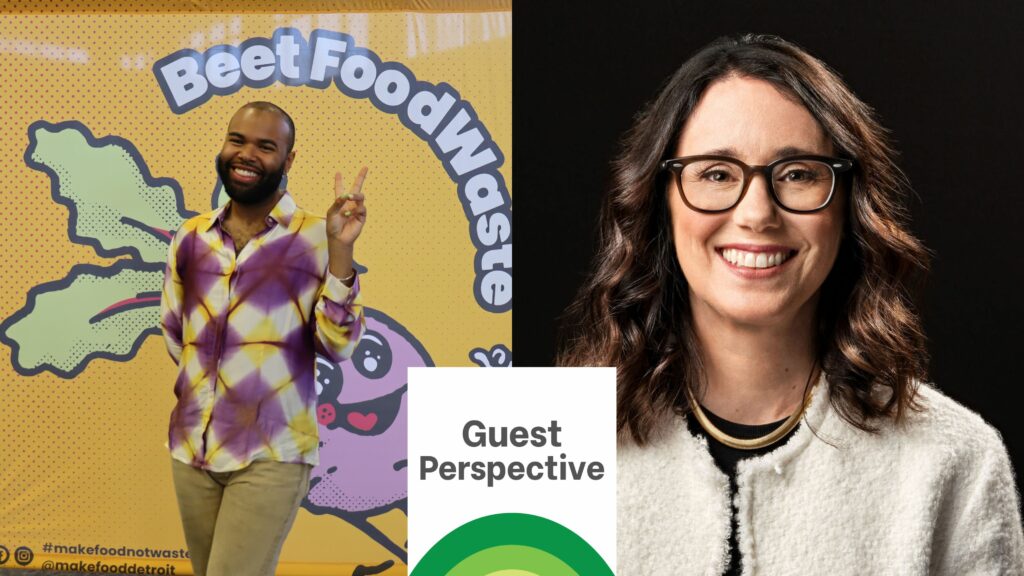
DANIELLE TODD, IS THE EXECUTIVE DIRECTOR OF MAKE FOOD NOT WASTE Landfilled food is one of the primary sources of climate change due to two main reasons. First, food decomposing in landfills emits methane, a greenhouse gas 25 times more potent than carbon dioxide. Second, landfilled food represents a waste of land, water, and transportation resources that cannot be reclaimed. Given the substantial volume of food we send to landfills, methane emissions are skyrocketing and our resources are depleting at an alarming rate. Annually, Michiganders discard more than 2 billion pounds of food, resulting in approximately one-third of our landfills being composed of food waste. This excessive waste leads to the negative impacts of extreme weather such as flooding and power outages. It deteriorates air quality, threatens our food supply, and endangers vital plants and animals. Consequently, the State of Michigan, along with the U.S. government and the United Nations, has set a target to halve food waste by 2030. However, with 2 billion pounds of food still being landfilled annually, achieving this goal within six years presents a major challenge. Despite the fact that the problem is so great, eliminating food waste from our landfills is not all that difficult compared to other climate-related changes we need to make. Yes, it’s something we all must do, but it’s also something we all can do. According to the United Nations, more than half of the food waste comes from our homes. That means all of us can make a huge difference in this issue by changing how we handle food in our kitchens. For a fun way to get started, join our 7 Day Food Waste Challenge. You’ll learn the basics and begin to set up some habits that will drive down the amount of food you throw away. Of course, food waste happens outside of homes too. And if we’re going to reach the State’s goal in less than six years, we need a concerted plan. That’s why Make Food Not Waste has launched The 2030 Project, focusing on Southeast Michigan, the region with the highest population density. Concentrating efforts in this area is strategic, given that a larger population corresponds to greater amounts of waste. The project’s objective is to divert all food waste from landfills in the top 15 cities in the region. By collaborating with 17 local and national partners, Make Food Not Waste is crafting a detailed plan incorporating best practices in food waste reduction from across the country. The project’s approach underscores two critical principles: first, there is no singular solution to food waste. Second, we can only stop food waste by working together. While skeptics may argue that completely eliminating food waste from landfills is unattainable, we feel otherwise. It does not require the invention of groundbreaking technology or a defiance of natural laws. Rather, we simply need to stop throwing our food in the garbage. While establishing infrastructure, logistical frameworks, and educational programs pose challenges, they are not insurmountable. The alternative—continuing to waste our resources and make our planet hotter – is not something we can live with. Learn more at www.makefoodnotwaste.org. Be sure to subscribe to our newsletter for regular updates on sustainable business practices in and around Detroit.
Detroiters Working for Environmental Justice’s Vision for Sustainability

LAPRISHA BERRY DANIELS IS EXECUTIVE DIRECTOR OF DETROITERS WORKING FOR ENVIRONMENTAL JUSTICE AND A LEADERSHIP COMMITTEE MEMBER FOR SUSTAINABLE BUSINESS NETWORK DETROIT DWEJ’s vision for sustainability is rooted in the three pillars of sustainability: health and happiness of community members, a healthy local environment free from hazards and harm, and economic vitality. As an organization that focuses on environmental justice and strives to have the voice of the community-centered as decisions are being made that impact their health (physical, mental, spiritual, and economic), we assert that community members can envision and create healthy communities that meet their immediate and distal needs. A healthy community is one in which all systems work together to support the health and well-being of all its members. Local businesses are part of the community’s ecosystem and thus play a unique role in supporting the health and well-being of the community. Ideally, the relationship between community members and local business is mutually beneficial as they prioritize health and co-create a healthy community. Local businesses and community members can work together to identify threats to community well-being and create strategies to address challenges. In Detroit, and beyond, climate change threatens our ability to achieve and maintain physical, mental, spiritual, and economic health. As we experience more extreme weather locally, such as extreme heat and annual “100-year floods”, we recognize that our built environment may not be able to weather the storm (pun intended). Unfortunately, our existing residential housing stock and current construction practices are too often ill-suited for current and future climate conditions. The mismatch between what is available and what is needed creates threats to the health of people and planet. DWEJ developed a contractor accelerator program that focuses on contractors increasing their awareness about ways to improve the built environment to mitigate risks related to climate change while centering sustainability. DWEJ’s contractor accelerator program, Building Health, serves as an incubator to support peer-to-peer learning among Detroit-based, Detroit-serving contractors of color. Building Health increases contractors’ awareness and implementation of “environmentally responsible and resource-efficient” practices that have: Bottom-line business benefits Individual and community health benefits Decrease environmental degradation. Building Health increases contractors’ understanding of the impact they can have on health. For example, participating contractors are presented with strategies for upgrading and greening residential housing in ways that include the use of various building methods and materials that can make homes more energy efficient. These improvements decrease greenhouse gas emissions, improve the health and comfort of the home, and improve the economic health of the occupants by reducing the cost of utility use. Participants receive financial and technical assistance to implement practices as part of the program as well. Additionally, contractors learn how to best communicate the benefits of sustainable repair and rehab practices to clients. The role of local contractors is just one example of the opportunity our community has to transform our ecosystem and economy for the better. There is a unique and distinct role that local business plays in supporting people and planet. Sustainability is an iterative process where we must work collectively toward the goal of having healthy and vibrant places in which to live, learn, work, play, and pray. — Check out Laprisha Berry Daniels’s recent #TEDTalks: Lessons from the Past on Adapting to Climate Change Be sure to subscribe to our newsletter for regular updates on sustainable business practices in and around Detroit.
University of Research Corridor Sustainability
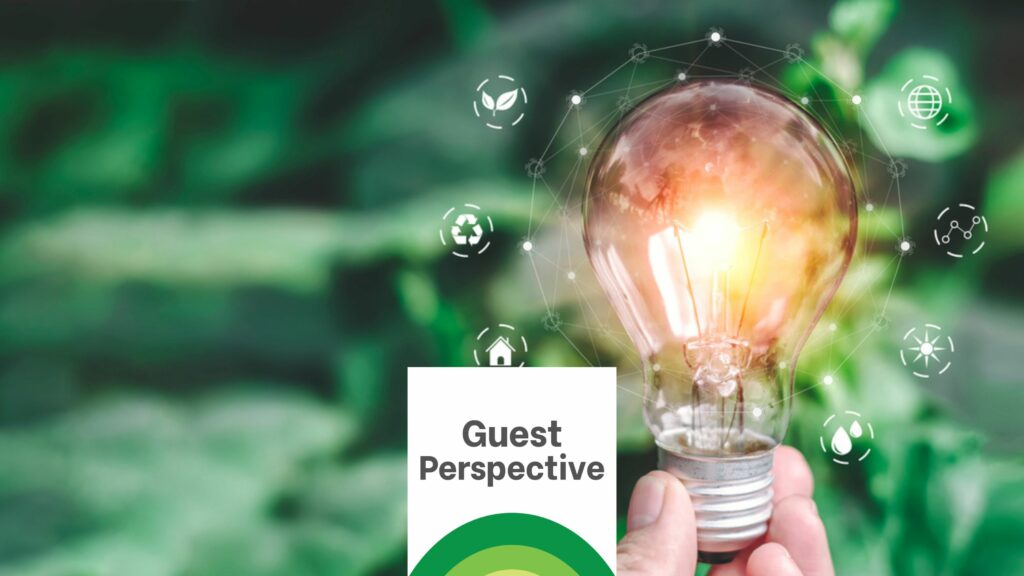
BRITANY AFFOLTER-CAINE, IS THE EXECUTIVE DIRECTOR OF MICHIGAN’S UNIVERSITY RESEARCH CORRIDOR Students and young adults see climate change and the preservation of our planet not as an impending challenge, but one with grave consequences that are impacting humanity today. Generation Z is more likely than older generations to act on their climate concerns through their purchasing power and in career choices. A majority of Gen Z are willing to spend 10% more money for sustainable brands according to a 2019 McKinsey report, and 42% of Gen Z respondents have already changed or plan to change their job or industry due to climate concerns according to a 2023 Deloitte survey. For these future leaders and doers, the greatest priority is to develop sustainable solutions to mitigate these impacts and the forces causing further environmental harm. Gen Z is not alone. Many university researchers, staff and administrators across Michigan’s University Research Corridor (URC) share their climate concerns and have made sustainability a priority area of research, education, innovation and service. An alliance of Michigan State University, the University of Michigan and Wayne State University that is dedicated to improving the quality of life for its region while advancing knowledge at a global level, the URC is committed to bringing all its resources to tackling climate change and mitigating its impacts today and in the future. Sustainability is an imperative we define as efforts to discover ways to meet the economic and health needs of people today while meeting the needs of future generations to thrive in ways that are effective, just and equitable. Sustainability includes decarbonization, clean energy innovation, reducing waste and pollution and managing limited resources, such as water. The sustainability work of URC researchers and students stretches across dozens of academic fields and within dedicated schools and colleges, such as U-M’s School for Environment and Sustainability, and includes partners in our communities, government and industry. Development of sustainable technologies, knowledge and practices is critical for addressing climate change and is good for our economy. For example, Michigan’s mobility sector is accelerating its transition to a more sustainable and eco-friendly industry. It is reshaping the way people think about transportation, pushing automakers to innovate, and encouraging governments and businesses to invest in a cleaner future. The URC universities play a key role in developing new technologies to support the mobility industry’s transition. Over the past five years, Michigan’s URC universities conducted more than $565 million in mobility-related R&D, which included sustainability-focused research, such as light weighting vehicles through advanced materials, energy storage to extend battery range for vehicles and alternative fuels that are more sustainable, such as hydrogen. The contributions our universities are making to support sustainability in the market can be seen in our strategic innovation partnerships with industry, like at MSU’s top-ranked School of Packaging, where researchers are working alongside industry leaders to reduce the amount of plastic waste in landfills and water systems by streamlining the different types of plastics that are used in manufacturing. MSU is also a leader in mass timber research, studying everything from structural performance and cost savings to fire resistance and sustainability. Made from a renewable resource, mass timber stores carbon and is less carbon-intensive to produce than other common building materials. U-M’s BioMatters team has developed their own sustainable solution for construction using upcycled sawdust. This fully biodegradable, reusable and recyclable material is formed into molds using 3D printing and can replace concrete formwork traditionally used across the construction industry. These molds are like giant LEGO pieces that can be used again and again. At a time when the consequences of climate change are increasingly evident and devastating, the need for sustainable solutions across all sectors has never been more urgent. This starts on our own campuses, where we all have implemented comprehensive sustainability initiatives that encompass various aspects of campus life. We’ve invested in energy-efficient infrastructure, adopted renewable energy sources, and reduced greenhouse gas emissions through innovative technologies and conservation efforts, showing that the URC is not only contributing to a greener Michigan but also setting an example for institutions nationwide. From lead in drinking water and intergenerational impacts of pollutants to mitigating development of fatbergs in our wastewater systems to storm water management, Wayne State has been studying the impacts of climate change and environmental threats to human health on residents and communities in Michigan’s largest city, Detroit. Old pollutants left behind by factories and other industries in the past are causing problems for people and the environment today. Supported by an $11.5-million National Institutes of Health grant, Wayne State University’s Center for Leadership in Environmental Awareness and Research is studying these old pollutants in cities, identifying how they move around and their impact on the health of mothers and babies. Our commitment extends to our work in sustainable action in communities across Michigan and the world. Michigan is renowned for its abundant freshwater resources, including the Great Lakes, which contain about 20% of the world’s surface freshwater supply. The presence of these vast water bodies makes our institutions leaders in research on water-related issues and solutions. The United Nations tapped Wayne State University and the University of Windsor to head its Regional Centre of Expertise on Education for Sustainable Development in the Detroit-Windsor region. The partnership will address community health, equitable city-building practices, public transportation, clean water, sustainable urban planning and housing policy, to better our two communities that share an international border. U-M recently received a $5 million grant to study how climate change is affecting water resources in different areas, especially when those areas share borders. This research will help us understand how rising temperatures and changing weather patterns are impacting our water supply, like rivers and lakes, and lead to better ways to manage and protect these vital sources of water. Sustainability is already becoming the heart of academic and industry research. Not only are environmental and economic pressures mounting, but our next generation of thinkers and leaders are dedicating their lives to addressing these
America Recycles Day in Detroit, November 15th

NATALIE JAKUB, IS THE EXECUTIVE DIRECTOR FOR GREEN LIVING SCIENCE, AND A LEADERSHIP COMMITTEE MEMBER FOR SUSTAINABLE BUSINESS NETWORK DETROIT America Recycles Day held annually on November 15th holds immense importance as it serves as a powerful reminder of the critical role recycling plays in conserving resources, reducing waste, and protecting the environment. This annual observance encourages individuals, communities, and businesses to take concrete steps toward sustainability by pledging to recycle and promoting recycling education and initiatives. It reinforces the idea that recycling is not just a one-time effort but a continuous commitment to creating a greener, more sustainable future for generations to come. America Recycles Day inspires collective action and underscores that every small recycling act contributes to a significant positive impact on our planet. ENHANCING RESIDENTS’ ACCESS TO RECYCLING SERVICES For nearly two decades, Detroit has been proactively enhancing residents’ access to recycling services as part of its broader sustainability mission. Acknowledging the importance of diverting recyclable materials from landfills to minimize environmental impact and conserve resources, the city has implemented initiatives such as expanding curbside recycling pickup, improving access to public space recycling, and fostering partnerships with local organizations. These strategic moves aim to make recycling more accessible and convenient for Detroit’s residents, empowering the community to actively participate in sustainable practices and contribute to a cleaner, greener city for all. GREEN LIVING SCIENCE At the forefront of Detroit’s sustainability journey stands Green Living Science (GLS), a nonprofit organization dedicated to educating Detroit residents about waste and recycling. Initially established in response to the Detroit Public Schools Community District’s request for recycling and conservation education, GLS has grown to provide a range of educational programs aimed at instigating behavior change for a more sustainable society. SERVING RESIDENTS GLS serves Detroit’s 600,000+ residents who have been adversely impacted by the trash, air pollution, and debris pervading communities. The city launched a curbside recycling program in 2015 and contracted GLS to teach residents about recycling and sign them up for free recycling carts. GLS remains the recycling and outreach contractor for the Department of Public Works (DPW), educating residents about recycling services available to them and working closely with block clubs and community groups throughout the city. One of GLS’s flagship programs, the Bee Green Business initiative, launched in 2014 in response to the corporate sector’s need for effective recycling and waste reduction solutions. This program educates and certifies companies in Southeast Michigan committed to responsible corporate citizenship. By training businesses to establish waste reduction and recycling systems and educating their staff on correct usage, Bee Green Business supports companies in minimizing their environmental footprint. Moreover, it recognizes and celebrates businesses that are leading sustainability in Michigan. Southeast Michigan, with its historical legacy of manufacturing and innovation, has emerged as a vibrant hub for sustainability initiatives, embracing the principles of responsible business practices. GLS envisions a future for the region where sustainability is integral to business operations, and where companies prioritize environmental impact alongside financial success. To realize this vision, GLS focuses on reducing waste through recycling and composting advocacy, partnering with local businesses to ensure recyclable materials are diverted from landfills, thus reducing the environmental burden. CIRCULAR ECONOMY GLS champions sustainable sourcing practices, encouraging businesses to embrace the circular economy, which minimizes waste and maximizes resource efficiency. These initiatives help bolster the regional economy while diminishing the environmental repercussions of long-distance transportation. While Southeast Michigan has made significant headway in its sustainability journey, it grapples with challenges stemming from its industrial past, including pollution and environmental degradation. Nevertheless, GLS’s emphasis on circular economy principles and waste reduction contributes to overcoming these challenges and forging a cleaner, more sustainable city. Remediation and cleanup efforts continue to address these issues. We are seeing businesses adopting circular economy principles, minimizing waste, and maximizing resource efficiency which will help address and overcome the legacy not dedicated to creating a cleaner city. Green Living Science plays a pivotal role in Southeast Michigan’s path toward sustainability by serving as a catalyst for change. Through engagement with businesses, schools, and communities, GLS offers valuable resources and educational programs that empower individuals and organizations to embrace sustainable practices. In conclusion, Southeast Michigan stands as a burgeoning center for sustainable business practices and environmental responsibility. As Southeast Michigan confronts its sustainability challenges and strives to attain its goals, the role of GLS in educating, inspiring, and facilitating change cannot be overstated. Together, Southeast Michigan and GLS are forging a path toward a greener, more sustainable future, benefiting all who call this region home. Be sure to subscribe to our newsletter for regular updates on sustainable business practices in and around Detroit.
Cumulus Holds Global Design for Adaptation Conference in Detroit
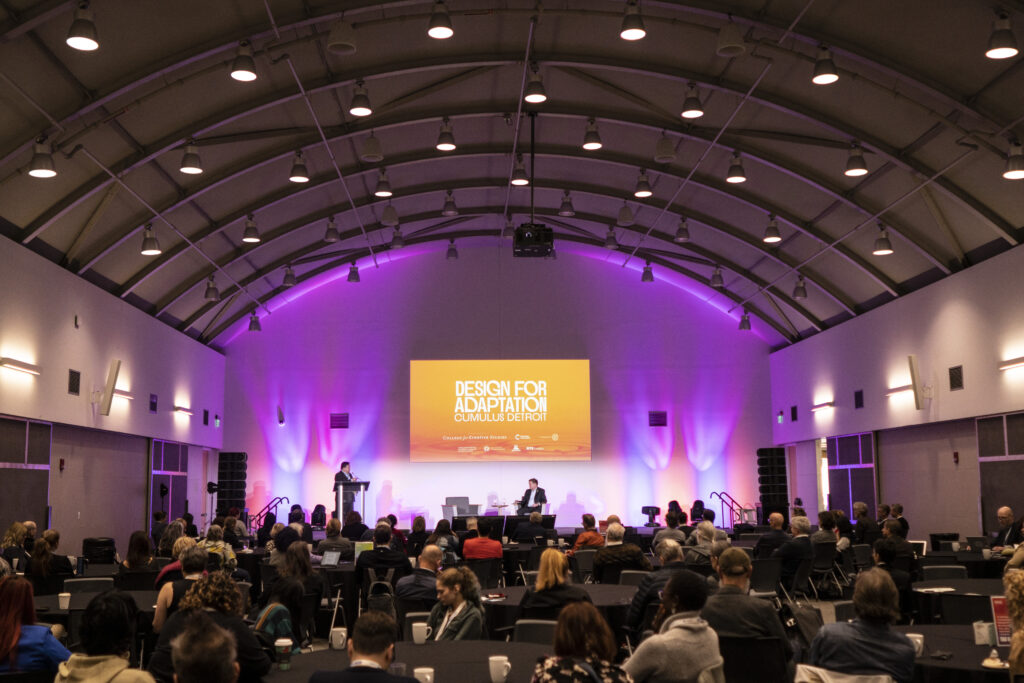
Cumulus, a global association of art and design education and research, held its annual conference, Design for Adaptation in Detroit Nov. 1-4 at the College for Creative Studies. This marks only the second time in its 30-year history that the conference was in North America. Cumulus connects 350 member institutions across 63 countries to exchange knowledge and best practices to elevate the positive role of designers and artists in creating sustainable and humane futures for all. “If there is one thing we know, we are stronger together,” said Terry Barclay, SBN Detroit Chair and CEO of Inforum, in a Thursday afternoon welcome address. “I think we have a common sense of urgency to break down silos that slow collaboration and this conference is certainly about that.” SBN Detroit was a conference sponsor. “This international conference has such diverse participation,” said Neil Hawkins, president of the Fred A. and Barbara M. Erb Family Foundation, who moderated a keynote address. We have creative designers hoping to change the trajectory of climate disasters. We have local Detroit leaders demanding justice for people already suffering impacts. We have great minds from all corners of the earth here in Detroit, which in many ways can be called ground zero for the climate crisis.” To that end, he noted that metro Detroit has endured serious local flooding from three 500-year rainfalls in the last ten years, holds 25% of the world’s surface freshwater in the great lakes, and the state is fittingly named after a natural resource – Michigan meaning “big lake.” Ian Lambert, co-chair and submissions chair for Cumulus 2022 and also dean of graduate studies at the College for Creative Studies, said, “As the only UNESCO-designated city of design in the U.S., Detroit has an incredible history of makers and manufacturing and design, so it’s fitting that Cumulus was held here. And it’s huge for Detroit.” The conference – focusing largely on the issue of climate change, automation, and income inequality – explored the role designers play in fostering adaptation through a wide range of approaches, methods, visions, and experiments. In that vein, the mission is to think ahead to catalyze ideas to reduce vulnerabilities and foster resilience for communities. Noting that the world is 1.2 degrees Celsius warmer than at any point in human civilization and that 300 billion tons of carbon have been added to the atmosphere by humans, keynote speaker Mikko Ollikainen, head of the Adaptation Fund, said to the audience of designers, “You are the minds to shape the future and you have your work cut out for you. … “We are facing an increasing arrival of uncertainty and must be prepared for things we do not expect and prepared to withstand shocks.” Land use and its relationship to climate change and inequity were the focus of several panels. Anika Goss, CEO of Detroit Future City, said in her keynote, “When we look at the cities in Detroit and around the world that are hit hardest by climate change, it’s always the poorest and the brownest neighborhoods.” She pointed to a community on the lower east side that suffered stormwater flooding as an example, saying, “From an economic standpoint these families continue to lose value in their homes and property simply because they live in a neighborhood with poor infrastructure.” The Eastside Community Network is working to put residents in charge of enhancing their neighborhoods toward resiliency. President Donna Given referenced its LEAP Sustainability Fellowship saying, “When you give someone a small amount of money and the responsibility to build a better space it’s amazing what that can do to a neighborhood.” The fellowship is a training and development program where fellows develop community projects, apply for grant funds to support them, and then implement them with the help of the community. To that end, Jerry Hebron, executive director of Oakland Avenue Urban Farm, shared her story of growing up near Motown in its heyday, leaving the city, and then returning in 2005 to find it riddled by crime and decayed. She became an activist and was charged to find out what needs the community had. “I knocked on doors to collect information and found that housing and food were the residents’ most important needs.” The high vacancy rate and open land equaled opportunity. The community wanted a garden and they built one – 20×20 feet. Today, 14 years later, they are farming 3.5 acres, a farmers market, youth programming, and more. “The community reclaimed that land and worked together to change their neighborhood.” Linking this back to design, Lambert and Leslie Tom, chief sustainability officer at the Charles H. Wright Museum of African American History, presented a collaboration involving the repurposing of three dying trees on the museum’s property. Instead of letting the trees end up in a landfill, The Wright and the Center for Creative Studies repurposed the trees and created a curriculum around co-design for sustainability, climate justice, and African American material culture, out of which came a narrative around how two neighbors – a museum and an art school – set a precedent for climate justice art. “One of the pieces a student created spoke to land use in Detroit by combining window panels from an abandoned home and the repurposed timber to tell the story of decay and rebuild,” Lambert said. There is no doubt that the complex consequences of climate change have pushed the need for community resilient strategies to emerge and thrive in the face of change. About the role designers play in this, Ollikainen said, “How designers see the world and work has a profound impact on building sustainable solutions. You have the vision, and you have the skills to turn that vision into reality.” Be sure to subscribe to our newsletter for regular updates on sustainable business practices in and around Detroit.





